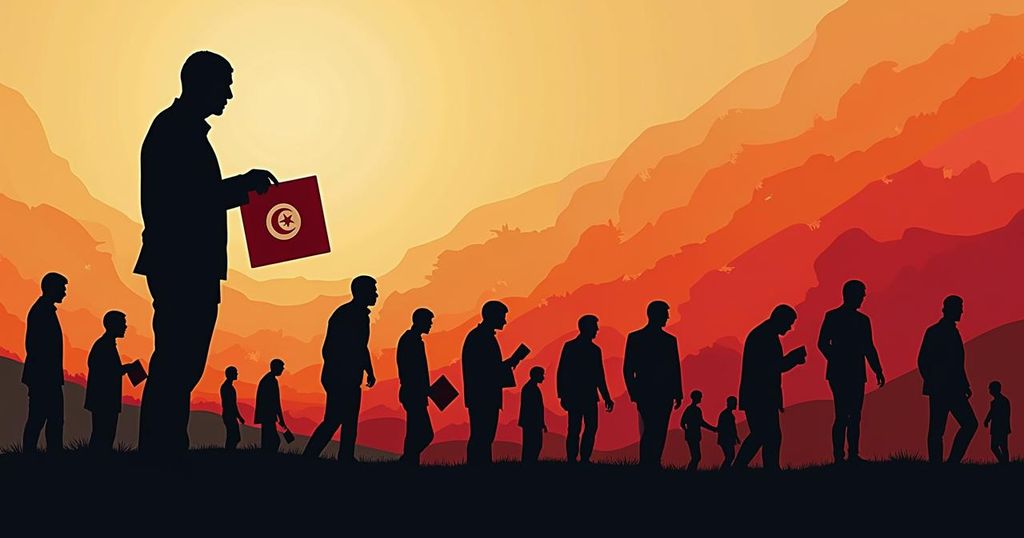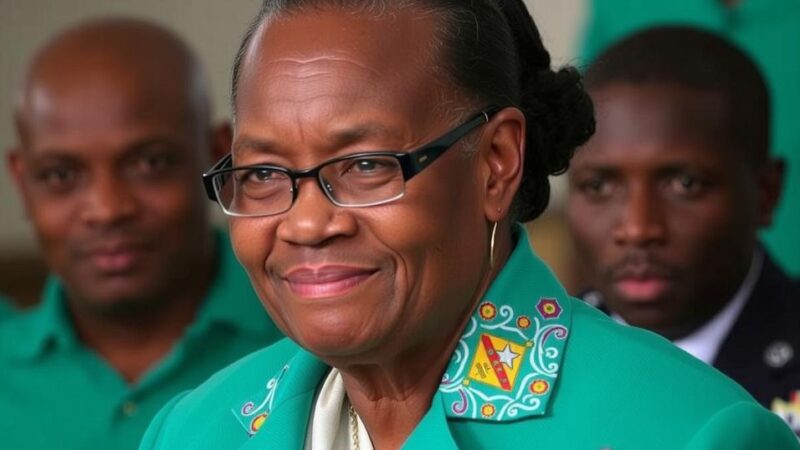Tunisia’s presidential election features incumbent Kais Saied set to win against a backdrop of repression, as 14 candidates were barred from running, and key political opponents remain imprisoned. The election is perceived as the culmination of a decline in democratic governance since Saied’s rise to power in 2019, with significant public apathy expected among voters due to ongoing economic hardships and a lack of viable alternatives.
Tunisia’s presidential election held on Sunday features incumbent President Kais Saied, who is poised to secure another term in office amidst accusations of repression and political crackdowns. His main challengers include Zouhair Maghzaoui, a former lawmaker aligned with Saied’s 2021 power consolidation, and Ayachi Zammel, a businessman currently incarcerated. Notably, 14 potential candidates were barred from competing by the electoral commission amid an atmosphere where dissent is heavily suppressed. The election, viewed by many as a definitive moment in Tunisia’s democratic journey post-Arab Spring, occurs as significant political opponents remain jailed, reflecting an ongoing dissatisfaction among the electorate. Voter engagement is reportedly low; many citizens express skepticism about the electoral process, feeling that their participation is futile. Nevertheless, the electoral board anticipates the participation of approximately 9.7 million voters, although analysts suggest that the existing socio-economic challenges coupled with the anticipated outcome may deter enthusiasm at the polls. In recent statements, President Saied urged for a substantial voter turnout, asserting that the nation is engaged in a “long war against conspiratorial forces directed by foreign influences.”
The context surrounding Tunisia’s presidential election is marked by significant political turmoil and repression. Following Kais Saied’s rise to power in 2019, he executed a dramatic power grab in 2021 that allowed him to amend the constitution and curtail political opposition, leading to widespread detentions of dissenters. Tunisia, once lauded as a beacon of democracy in the Arab world after the 2011 revolution, has seen its democratic institutions increasingly undermined. With many political figures, including leaders of opposition parties, jailed, the political landscape is starkly diminished, leaving little to no choice for voters. The election thus unfolds against a crisis atmosphere — both politically and economically — where the hopes of many citizens appear to be dashed. The significant drop in public enthusiasm for the electoral process further emphasizes the challenges facing Tunisia’s democratic aspirations.
In conclusion, the presidential election in Tunisia, heavily dominated by President Kais Saied, takes place under conditions of extensive political repression and widespread public disillusionment. Many citizens perceive the electoral process as largely ineffective in instigating real change, especially amid the backdrop of economic distress and absent substantive political competition. As Saied prepares to likely extend his rule, there is an air of uncertainty about the future of Tunisia’s political landscape, coupled with fears that his continued presidency could exacerbate the ongoing authoritarian drift and socio-economic struggles within the nation.
Original Source: www.france24.com







